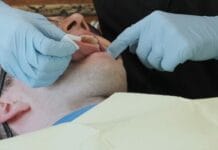Congenital heart disease in children can be a devastating diagnosis for the parents, the entire family, and, especially, the children. Sometimes these defects need no attention, but these defects can often grow quickly into life-threatening problems that require many serious surgeries and long hospital stays. Many of these defects, if serious, are usually diagnosed when the patient is a baby. This means that the disease defines the lifestyle of the child and their entire family. First-world countries are more educated and better prepared for these problems, but that still doesn’t mean that healthcare workers understand the full concept of what is at stake.
Germany has amazing doctors, but much like American physicians, they aren’t aware of every medical function affected by heart conditions. Parental Awareness of Oral Health and Nutritional Behavior in Children with Congenital Heart Diseases Compared to Healthy Children is a study conducted in Germany that measures a parent’s knowledge about their children’s disease in relation to the essential care of their teeth and the serious problems that can come from not placing emphasis on oral care as part of general healthcare.
How Does Oral Hygiene Effect CHD?
Congenital Heart Disease, or CHD, increases a person’s chance of developing infective endocarditis, or bacterial endocarditis, which happens when bacteria are introduced into the bloodstream and infect the heart.
Parents and their children all over the world need more education about their oral health than doctors feel able to give, further highlighting the separation between the healthcare and dental fields in areas where they should be working together for the lives of our patients.
But what are patients and their parents aware of when it comes to the child’s CHD and dental care?
What the Study Found
The World Health Organization (WHO) states that less than 50 grams of sugar a day is ideal for healthy dental health, though our researchers discovered a problem with the CHD children’s parents. The affected children were reported to ingest much more than the 50 grams every day and were given the sugary foods by parents. In comparison, the control group of average children with no reportable health issues had a lower chance of eating more than 50 grams.
This leads to the conclusion that children with CHD are more at-risk for caries and other related problems.
In the research, the healthy children group reported that they brushed their teeth more than children with CHD, with most healthy children brushing twice a day compared to the once-a-day brushing of the CHD children. Researchers believe that parents of sick children are so busy and worried about literally everything that oral care, including routine dental visits, are put on the back burner when it comes to the more serious doctor’s appointments that dot their everyday lives.
Extra steps, including fluoride and interdental cleaning, were not always taught due to such time restraints and parents’ reluctance to add more stress and activities to their children’s days. These home care routines become more difficult while a family is on the road, traveling from doctor’s appointment to surgery to doctor’s appointments.
Very few of the sick children and their parents reported even going to the dentist routinely, as they didn’t have time. Most of all, the majority of parents with sick children reported that they didn’t really understand the preventative measures taken during routine visits with their dentist could prevent problems that they may have to face in the future.
The lack of knowledge they have about the relationship between dental health and physical health is negatively affecting their children. This study shows that we need to be as vocal as possible with the patients and their parents about preventive care and the oral-systemic link. Increased attention to at-home routines and preventive care can increase the quality of life that their children face and can prevent problems arising that can threaten, or even end, their lives.











